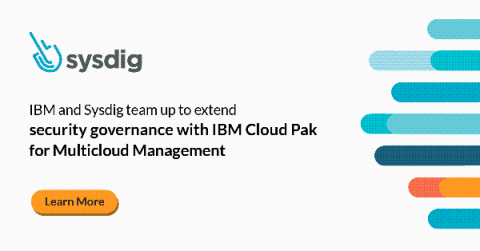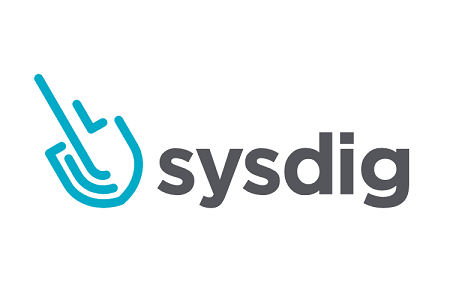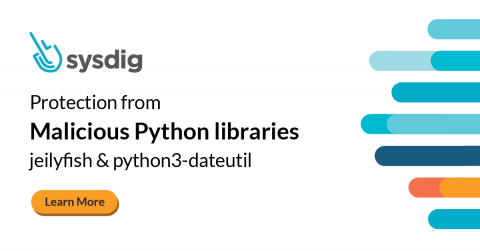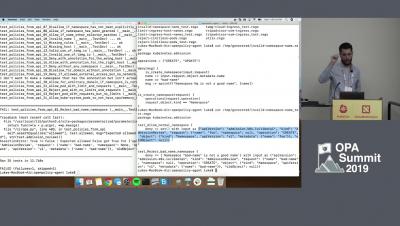IBM and Sysdig team up to extend security governance with IBM Cloud Pak for Multicloud Management
Sysdig, an industry leader for monitoring and security of cloud-native workloads, and IBM have joined forces to bring a fully Integrated powerful platform that delivers the security and performance that enterprises need in today’s multi-cloud world. Sysdig Secure and the IBM Cloud Pak for Multicloud Management (MCM) can help you accelerate Kubernetes and cloud adoption by addressing security and regulatory compliance from the start on enterprise hybrid cloud environments.










